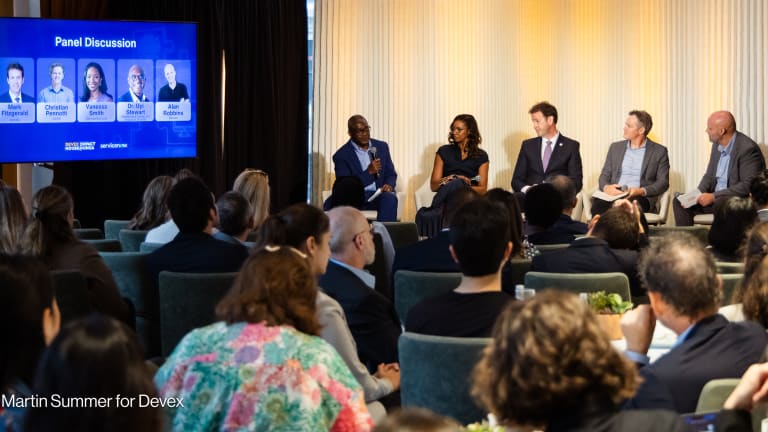
The movement toward equity across the global development sector is real, and the need to shift power to those closest to the work is at a pivotal stage. The time to move from talk to action is now.
However, translating concepts into reality remains challenging. In the U.S. Agency for International Development’s first progress report on funding local partners, there was a wide gap between USAID’s commitment to allocate 25% of funding directly to local partners and the actual achievement of only 10%.
And yet, equitable access to funding is only one barrier to advancing locally driven development.
Humentum has dedicated its recent work to identifying and understanding the barriers that impede equity between public and private funders and local partners — international NGOs and national NGOs. This led to the publication of the three companion reports that make up our “Collective Journey to Equitable Development” series. Below, we highlight some of the key takeaways from the reports.
The Collective Journey to Equitable Development reports
From Operations to Outcomes: A Policy Blueprint for Locally-Led Development — Provides funder, INGO, and NNGO perspectives based on consultations with 2,000+ global thought leaders and professionals from 100+ countries.
Equitable, Resilient, Accountable, or ERA, Index — Details insights into INGO transformation provided by 41 organizations and 100 senior leaders.
NNGO Voices - Leader Perspectives on Locally-Led Development — Presents the NNGO perspective with input from 50 senior NGO leaders in six African countries and other consultations.
The biggest barrier: Traditional power dynamics
Despite a lot of talk and some action toward shifting power, we continue to see traditional power dynamics playing out. Funders typically wield outsized power as both potential barriers to and enablers of change. NNGOs are often viewed as passive beneficiaries, with change happening in their name but without their active leadership. And INGOs act as intermediaries, unsure of their future role in the new landscape.
Funders: The process barrier
Funder policies for partner vetting, due diligence, and risk management are often only accessible to organizations possessing sophisticated business development, compliance, and financial management systems. Non-traditional, local, and new partners frequently don’t have the systems or resources to successfully navigate complex donor requirements. Without funding, traditional players dominate the ecosystem.
However, funders can be change agents by retooling procurement and compliance burdens. The Ford Foundation, MacArthur Foundation, and USAID have all focused to some extent on changing how they approach cost recovery, capacity strengthening, and partnerships with local partners.
NNGOs: The inclusion and power barriers
Our consultations with dozens of African NNGO leaders provided one key message: Entrenched power imbalances continue to stymy change.
“Power is the main barrier, you cannot decolonize the sector when there is such a big power imbalance … we are auxiliary partners, so in that kind of mindset where would they [INGOs] create the space to listen to you about shifting power?”
— Willie Mpasuka, executive director, Rays of Hope MalawiFew local leaders are actively involved in the global power shift conversation, although many are eager to engage and share their experiences to influence the sector. However, the continuous need for fundraising and the burdens of restrictive grant conditions makes such engagement difficult. This echoes our previous findings in the Administrative Cost Recovery report.
The result is a movement for locally led development evolving without local practitioners in the driver’s seat, leading to a disjointed understanding of issues and potentially ineffective solutions based on inadequate understanding.
INGOs: The autonomy barrier
INGOs are more involved than NNGOs in the conversations, and while many aspire to change their operating models — 81% of ERA Index survey respondents — only 42% report implementing deliberate changes.
Even proactive INGOs are hampered by the global development ecosystem. We found that organizations progressed where they had autonomy, such as decentralizing authority and distributing leadership structures. Still, they struggle to make meaningful changes in areas where they have less control, such as finance and risk. In this space of uncertainty, and with no clear definition of what successful transformation should look like, INGOs are left to interpret the signals of change around them.
“[Trust-based compliance] is an area where our donors are rigid so as an INGO, we struggle with how to be more flexible with our partners when the donors aren't flexible with us.”
— ERA Index respondentTransforming power dynamics
How the development sector embraces equitable ways of working will make the difference between superficial adjustments to the system and real transformative change.
Our research revealed islands of innovation in a sea of traditional mindsets and power dynamics — where those with money make the rules. It will take significant culture shifts within funder, NNGO, and INGO spaces to move from the status quo to sector-wide transformation.
To progress, the sector needs to question itself:
• What changes, if any, will INGOs make to their architecture models?
• What will it take for funders to harmonize due diligence, financial reporting, and compliance requirements?
• How can equitable, long-term partnerships move funders, INGOs, and NNGOs from a scarcity mindset to one of abundance?
• Is it possible for funders and INGOs to shift their thinking and policies around risk?
Embracing change and moving forward, together
Change is messy but possible, even in complicated ecosystems such as the global development sector. As champions of strong, equitable, resilient, and accountable operating models, we at Humentum know that providing resources and facilitating connections will build trust and create the momentum needed to achieve meaningful transformation.
Every voice matters and none can be overlooked. We encourage you to join us and others in the movement toward operationalizing equity.
Read more about Humentum’s Collective Journey to Equitable Development here.










